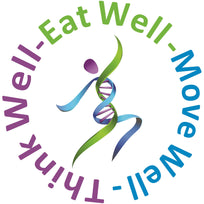Eat Well – Move Well – Think Well®
Click HERE for printable NEWSLETTER PDF
|
QUOTE BOARD “Twenty-one trials were included in the analysis. Meta-analyses showed reductions in the absolute risk of 0.8% for all-cause mortality, 1.3% for myocardial infarction, and 0.4% for stroke in those randomized to treatment with statins, with associated relative risk reductions of 9%, 29%, and 14% respectively.” “Conclusions and Relevance: The results of this meta-analysis suggest that the absolute risk reductions of treatment with statins in terms of all-cause mortality, myocardial infarction, and stroke are modest compared with the relative risk reductions, and the presence of significant heterogeneity reduces the certainty of the evidence. A conclusive association between absolute reductions in LDL-C levels and individual clinical outcomes was not established, and these findings underscore the importance of discussing absolute risk reductions when making informed clinical decisions with individual patients.” |
|
WHAT YOU NEED TO KNOW Relative Risk Reduction is a misleading statistic used by pharmaceutical researchers to artificially increase the perceived effectiveness of a drug or vaccine. For example, if there are two groups of 1000 subjects in a study, and in the intervention group 2 people out of 1000 have a heart attack or stroke, or die, or get the infection, get hospitalized from infection, or die from infection and in the placebo group that does not get the intervention 4 people out of 1000 heart attack or stroke, or die, or get the infection, get hospitalized from infection, or die from infection, the RELATIVE risk reduction is 2:4 or a 50% reduction. However, the absolute risk reduction, the real-life risk reduction, is 4/1000 versus 2/1000 for an absolute difference of 4-2/1000 or 2/1000 which is a 0.2% risk reduction – a vastly different benefit compared to the 50% relative risk reduction which is MEANINGLESS in real life. Believe it or not, it is legal, and indeed commonplace for the benefits of drugs and/or vaccines to be reported as relative rather than absolute risk reductions. So, when you hear that a drug or a vaccine is 95% effective, you of course think that 95/100 people are protected from whatever outcome they are discussing (heart disease, stroke, death, infection, hospitalization from infection, death from infection etc). The reality is that the actual benefit in terms of risk reduction is likely so small as to make it inconclusively beneficial. As an example, the absolute risk reduction, the real-world risk reduction from statin or cholesterol drugs and the COVID vaccines is about 1%. This is information every patient must have to make an informed choice and to give informed consent. |
|
WHAT YOU NEED TO DO To quote these authors - you need to be informed about absolute versus relative risk reductions of any drug or vaccine you are being offered. |
|
References: Evaluating the Association Between Low-Density Lipoprotein Cholesterol Reduction and Relative and Absolute Effects of Statin Treatment: A Systematic Review and Meta-Analysis. JAMA Intern Med. 2022;182(5):474-481 |
Click HERE for printable NEWSLETTER PDF

